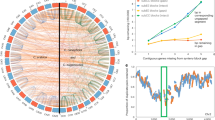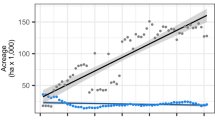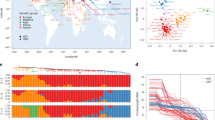Abstract
As the public debate in Europe about genetically modified (GM) crops heats up and the trade row between the United States and the European Union over GM food escalates, what better time to examine the issues with an international group of experts (Box 1). Their views are diverse, but they all agree that we need more impartial communication, less propaganda and an effective regulatory regime that is based on a careful case-by-case consideration of GM technology. It seems that GM crops are here to stay, so let us hope that these requirements are met and that the developing nations that perhaps have the most to gain from this technology can start to reap its benefits.
This is a preview of subscription content, access via your institution
Access options
Subscribe to this journal
Receive 12 print issues and online access
$189.00 per year
only $15.75 per issue
Buy this article
- Purchase on Springer Link
- Instant access to full article PDF
Prices may be subject to local taxes which are calculated during checkout
Similar content being viewed by others
Related links
Related links
Further information
Pew Initiative on food and biotechnology
United Kingdom government report on the economics of GM crops
Rights and permissions
About this article
Cite this article
Arntzen, C., Coghlan, A., Johnson, B. et al. GM crops: science, politics and communication. Nat Rev Genet 4, 839–843 (2003). https://doi.org/10.1038/nrg1185
Issue Date:
DOI: https://doi.org/10.1038/nrg1185
This article is cited by
-
CRISPR/Cas9-mediated genome editing efficiently creates specific mutations at multiple loci using one sgRNA in Brassica napus
Scientific Reports (2017)
-
Weed resistance development and management in herbicide-tolerant crops: experiences from the USA
Journal für Verbraucherschutz und Lebensmittelsicherheit (2011)
-
Making the most of GM potatoes
Nature Biotechnology (2010)



